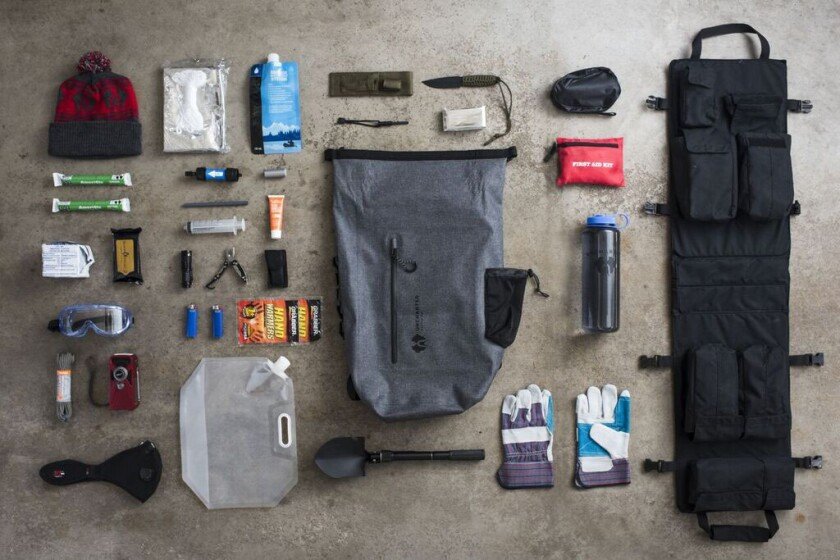Ever had your car break down in the middle of nowhere, miles from the nearest garage, with a dead phone battery and no clue what’s wrong under the bonnet? That feeling of helplessness sticks with you. Being prepared isn’t just for long road trips or remote drives. Even quick journeys across town can take a turn, and that’s where your survival kit comes in.
Every driver, no matter how experienced or how new their car is, needs a set of go-to essentials. These aren’t luxury extras. They’re the basics that keep you safe, help you get moving again, or at least make the wait far more bearable.
A Number for a Vehicle Recovery Service
This one might sound obvious, but you’d be surprised how many people don’t have it saved or written down anywhere accessible. When your car won’t start, breaks down completely, or you end up with a flat tyre you can’t fix, having a number for a reliable vehicle recovery service like NI Car Recovery can save you hours of stress.
- Write it down – Keep it in your glovebox on a card or notepad. Phones die.
- Store it in your phone – Not just under “breakdown” or “tow truck”. Give it a name you’ll find quickly.
Even if you’re part of a breakdown membership, double-check the contact process. Some require you to report through an app or have details handy, which isn’t easy when you’re stuck on a dark road with no signal.
A Few Basics That Make a Big Difference
There are certain things you can throw into the boot and forget about until the day they’re needed. They don’t take up much space, but they come in clutch more often than you’d expect.
First Aid Kit
Accidents don’t always involve a crash. Sometimes it’s a cut from changing a tyre or a scrape from a sharp tool. A small first aid kit with plasters, antiseptic wipes, gloves, and basic bandages can sort out minor injuries quickly.
Torch (and Spare Batteries)
Phones aren’t torches. At least, not for long. Keep a small but powerful torch in the glovebox or boot. One with a magnetic base or one that can stand on its own is even better if you need both hands free.
Water and Snacks
These are survival kit staples for a reason. If you break down somewhere remote or face delays in poor weather, staying hydrated and keeping your energy up becomes a priority. Keep a few bottles of water and non-perishable snacks like cereal bars or nuts in the boot.
Essential Tools and Gear Worth Having
You don’t need to become a mechanic overnight, but a few tools and bits of kit can help you handle the most common issues.
- Jump leads – Battery dead? Jump leads mean someone else can help, fast.
- Tyre inflator or sealant – For slow punctures or emergency inflation. Not a permanent fix, but it gets you moving.
- High-vis vest and warning triangle – Visibility is everything when you’re stuck at the side of the road, especially at night or in bad weather.
- Basic tool kit – Screwdrivers, pliers, and a wrench. Small, simple, and often just enough to get you out of a jam.
A Power Bank That Actually Works
We all rely on our phones. Maps, contacts, recovery services, and emergency numbers all live there. So, when your battery dies, you’re cut off from everything that could help. Keep a fully charged power bank in your glovebox. Not one that’s been sitting there for two years and no longer holds a charge. A reliable power bank should have enough juice to fully charge your phone at least once or twice.
Things That Keep You Comfortable While You Wait
Breaking down is bad enough without freezing, sweating, or sitting awkwardly for hours. These extras might not fix anything, but they’ll make the wait more bearable.
- Blanket – Useful in winter or when temperatures drop suddenly. Also works as a seat cover if you’re soaked or muddy.
- Umbrella or lightweight poncho – If you need to step out of the car during heavy rain, this saves you from getting drenched.
- Foldable seat or mat – Ideal for those longer waits on hard or wet ground. Takes up almost no space but makes a difference.
Spare Clothes and Footwear
Sounds excessive, but anyone who’s had to change a tyre in business clothes or formal shoes knows how useful this can be. Keep a pair of old trainers and a basic change of clothes in a bag in the boot. It’s not about style. It’s about being practical when the unexpected hits.
Documents That Matter
A lot of drivers never check what’s actually in their glovebox. Then when they need something important, they realise it’s either missing or completely out of date. Keep the following in a sealed folder or sleeve:
- Copy of your driving licence (if not already carrying it)
- Insurance and breakdown policy details
- MOT certificate copy
- Emergency contact details
Avoid keeping originals of anything too important, but copies can help speed things up during emergencies or police stops.
Phone Numbers That Aren’t Just Stored Digitally
It’s not just about recovery services. Make sure you have written numbers for:
- A trusted mechanic or garage
- Family member or friend who can help
- Local taxi or tow company (if different from your main recovery service)
It seems old-fashioned, but when your phone’s flat or you lose signal, old-fashioned wins.
Know Your Car’s Quirks
It’s not just about what’s in your boot. Knowing the little things about your own car can make a massive difference. Where is the towing eye? How do you remove the wheel nuts? Where’s the jack stored? These details vary by car, and figuring them out during a breakdown is not the time.
Spend 10 minutes getting familiar with your car’s basics. It might save you from a long, unnecessary delay.
Don’t Wait Until It’s Too Late
A survival kit isn’t something you build in the middle of a crisis. It’s something you prep when everything’s working just fine. Most of what’s on this list can be gathered in an afternoon. Once it’s done, it’s done. You won’t need to think about it again until you actually need it — and by then, you’ll be glad you did.
Breakdowns happen. Tyres burst. Batteries die. Traffic gets stuck for hours. But when you’ve got the essentials sorted, you’re never completely stuck. You’re ready.

